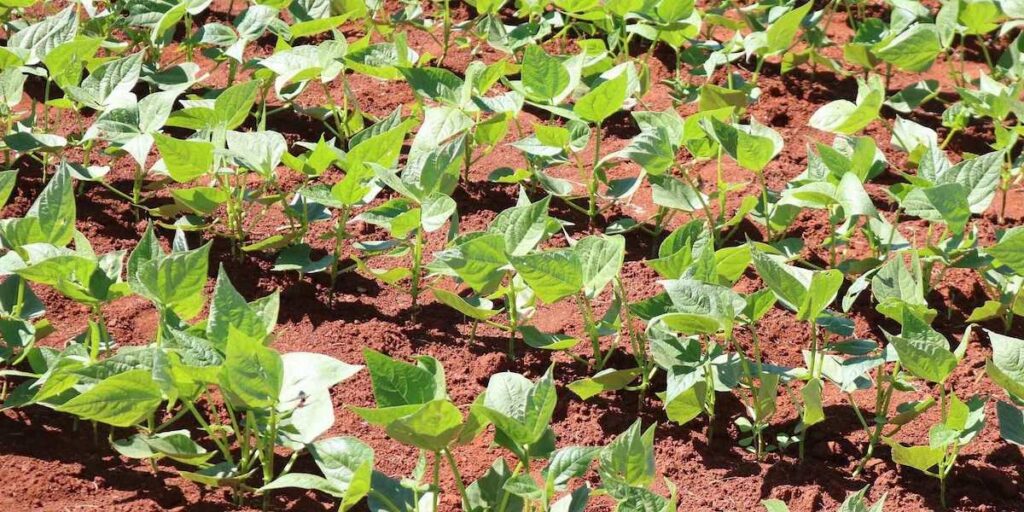India Develops New High-yielding and Pest-resistant variety of Soybean to Help Boost Countrywide Production

Indian Scientists have developed a high-yielding and pest-resistant variety of soybean that can be grown in non-traditional states (for its cultivation).
This newly developed variety called MACS 1407 is suitable for cultivation in the states of Assam, West Bengal, Jharkhand, Chhattisgarh and North-Eastern states and its seeds will be made available to farmers for sowing during the 2022 Kharif season.
In 2019, India produced around 90 million tons of soybean, widely cultivated as oil seeds as well as a cheap source of protein for animal feed and many packaged meals and is striving to be among the world’s major producers of soybean. High-yielding, disease resistant varieties of the legume can help achieve this target.
Accepting this challenge, scientists from MACS- Agharkar Research Institute (ARI), Pune, an autonomous institute of the Department of Science & Technology, Government of India in collaboration with Indian Council of Agricultural Research (ICAR), New Delhi have developed higher yielding varieties and improved practices for the cultivation of soybean.
Using the conventional cross breeding technique they developed MACS 1407 which gives 39 quintals per hectare making it a high yielding variety and is also resistant to major insect-pests like girdle beetle, leaf miner, leaf roller, stem fly, aphids, white fly and defoliators. Its thick stem, higher pod insertion (7 cm) from ground, and resistance to pod shattering make it suitable even for mechanical harvesting. It is suitable for rain-fed conditions of north- east India.
Mr Santosh Jaybhay, ARI scientist who led this work said, ‘MACS 1407’ showed 17% increase in yield over the best check variety and 14-19 % yield advantage over the qualifying varieties. It is highly adaptive to sowing from 20 June to 5 July without any yield loss. This makes it resistant to the vagaries of Monsoon as compared to other varieties.”
MACS 1407 requires an average 43 days for 50 % flowering and takes 104 days to mature from the date of sowing. It has white coloured flowers, yellow seeds and black hilum. Its seeds have 19.81 % oil content, 41 % protein content and show good germinability. This high yielding, pest resistant, low water and fertiliser requiring soybean variety, suitable for mechanical harvesting has recently been released by the Central Sub-Committee on Crop Standards, Notification and Release of Varieties of Agricultural Crops under the Ministry of Agriculture and Farmers Welfare, Government of India making it legally available for seed production and cultivation.
It may be noted that the country has also the Indore-based Indian Institute of Soybean Research that is maintaining 4000 accessions of soybean, which includes wild and weedy relatives and varieties released in India. Nearly 3000 accessions have been characterized for 17 descriptors.
Under the AICRPS system, 102 improved varieties have been developed till date under the domestic breeding programme ( Varieties List, Varieties state wise, Varieties with special characters). The centre has developed four soybean varieties viz. NRC 2 (Ahilya 1), NRC-12 (Ahilya 2), NRC-7 (Ahilya 3) and NRC-37 (Ahilya 4).
Several varieties like JS 93-05, JS 95-60, JS 335, JS 80-21, NRC 2, NRC 37, Punjab 1, Kalitur have been developed with high seed longevity.
Varieties like MACS 58, NRC 37, Type 49, Durga, Punjab 1 have been developed that are suitable for mechanical harvesting having high insertion point of the lowest pod.
Rust tolerant varieties viz. PS 1024, PS 1029, Indira Soya 9, MAUS 61, MAUS 61-2 etc. under the AICRPS were handy in the management of rust.
Identification of varieties for food grade characters, popularization of soy products, commissioning of tofu making plant and related research and training have been strengthened.
Indian Institute of Soybean Research also coordinates the breeder seed production to meet the national requirement of soybean seed. There are about 30 varieties are in seed chain at present. Year-wise production of breeder seed of different varieties is given in the list.



